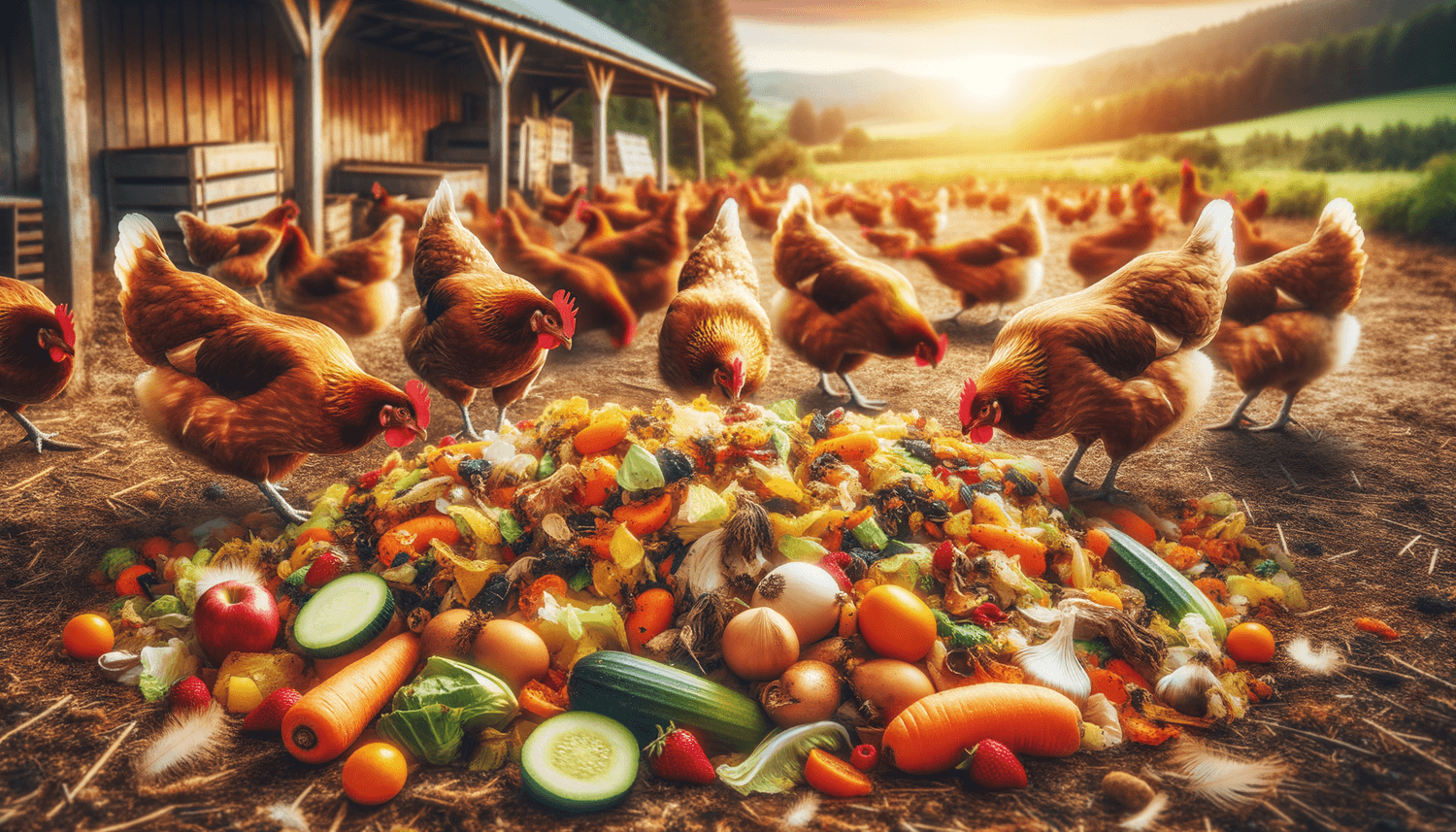Have you ever found yourself in a frenzied game of ‘Chicken or Compost’, as you sort through your kitchen scraps for your beloved feathered friends? 🐔 Well, cluck and strut no more, dear poultry enthusiasts, because we’re about to serve up some tasty answers to the age-old question: can chickens eat rotten food? In this egg-citing blog post, we will peck into the importance of a balanced diet, explore the benefits and risks of recycling those funky finds, dish on nutritional value, and of course, learn how to properly spoil our favorite gals and guys with delicious and safe treats!
Can chickens eat rotten food?
No, chickens should not eat rotten food as it is not safe for them. Rotten food can harbor harmful bacteria, mold, or toxins that can be detrimental to the health of your chickens. While they may be able to digest some spoiled foods without issue, it’s best to avoid the risk and provide them with a nutritious and balanced diet to ensure their well-being.
A balanced diet for happy, healthy chickens
Just like humans, chickens thrive on a balanced diet to stay healthy and productive. A major part of their daily intake should be high-quality chicken feed which is packed with the essential nutrients, vitamins, and minerals that our feathered friends need. In fact, chicken feed should make up around 80-90% of their diet, as it’s specifically designed to meet their nutritional requirements.
The remaining 10-20% of a chicken’s diet can be reserved for a variety of treats, such as fruits, vegetables, and other goodies that provide additional nutrients and beneficial elements. These treats not only offer variety, but they also help to keep your backyard flock entertained and engaged. As always, moderation is the key, and it’s important to avoid overindulging your hens with too many treats, as this may lead to dietary imbalances and potential health issues.
Nutritional value of rotten food for chickens.
Feeding rotten food to chickens is not recommended due to the potential risks it poses to their health. While some rotting foods may still host a certain amount of vitamins and minerals, the rotting process can also promote the growth of harmful bacteria, mold, and toxins that far outweigh any potential nutritional benefits. Chickens have a strong digestive system, but they are not immune to the adverse effects of spoiled or contaminated food.
As the food breaks down and decays, the nutritional value decreases, and the risk of toxic substances and pathogens increases. Moreover, rotten food can be less palatable, and chickens may become disinterested in eating it. By providing chickens with high-quality feed and fresh, non-rotten treats, you can ensure that they are receiving the dietary nutrients required for their overall health and well-being, without the potential health hazards associated with rotten food.
Nutrition table of rotten food for chickens.
| Information | Description |
|---|---|
| Nutritional Value | Decreases as food rots, with an increased risk of toxins and pathogens. |
| Suggested Serving Size | None, as chickens should not be fed rotten food. |
| Safe Feeding Practices | Avoid feeding rotten food to chickens to ensure their health and well-being. |
| Preparation | Not applicable, as chickens should not be fed rotten food. |
| Potential Risks | Harmful bacteria, mold, toxins, and other pathogens can cause health problems in chickens. |
| Hydration | Unknown and unreliable in rotten food. Provide fresh, clean water for hydration. |
| Digestion | Chickens can be negatively affected by harmful substances found in rotten food. |
| Seasonal Availability | Irrelevant, as chickens should not be fed rotten food in any season. |
| Other Benefits | None, as chickens should not be fed rotten food. |
Recognizing spoilage in fruits and vegetables
It’s crucial to identify when fruits and vegetables have gone bad to ensure you’re only feeding your chickens safe and healthy treats. Overly soft, discolored, or covered in mold, these spoilage signs indicate that they’re no longer safe for your feathered friends. A simple rule of thumb: if you wouldn’t eat it, neither should your chickens.
Providing a safe and clean environment
Maintaining a clean coop and enclosing vegetation-free areas for your chickens will also help prevent the consumption of rotting food. Regularly remove any leftovers, spilled feed, and fecal waste to minimize the risk of food contamination, disease, and pests. By keeping the chickens’ environment tidy, you’re ensuring their overall health and happiness.
Proper food storage techniques
It’s essential to store fresh fruits, vegetables, and supplemental treats properly to prevent spoilage and maintain their nutritional value. Keep perishable items refrigerated (if necessary), and be mindful of storing them in sealed containers or airtight bags. Proper storage techniques will guarantee that you’re providing quality food to your backyard flock, which will keep them happy, healthy, and productive.
When in doubt, consult an expert
If you’re ever unsure about whether certain foods are safe or suitable for your chickens, never hesitate to consult a veterinarian or a local poultry expert for guidance. It’s always better to be safe than sorry when it comes to maintaining the health of your beloved backyard flock.

















